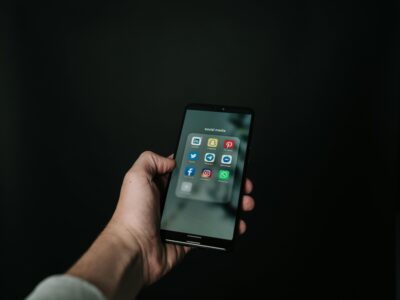Social media is part of everyday life—but for individuals in addiction recovery, it can present hidden risks. Platforms like Facebook, Instagram, TikTok, and Snapchat may seem harmless or even helpful, but they can also serve as powerful addiction triggers.
At Mississippi Drug and Alcohol Treatment Center (MSDATC), we understand how social media and addiction triggers are connected. By learning to recognize digital stressors and manage your online experience, you can protect your recovery and improve your mental well-being.
How Social Media Triggers Addiction Cravings
When you’re scrolling through your feed, you may not realize how much content can activate cravings or negative emotions. But for people in early recovery, subtle reminders of past substance use or feelings of isolation can be destabilizing.
Common Online Triggers Include:
- Posts showing alcohol, drug use, or party culture
- Memories or “On This Day” posts from times of active addiction
- Influencer content glamorizing substance use or risky behavior
- Comparison triggers, such as seeing others’ “perfect” lives
- Loneliness and FOMO (fear of missing out)
- Exposure to arguments, news, or stress-inducing content
These triggers don’t always lead to immediate relapse, but they can create emotional distress, anxiety, and urges to use—especially if you’re not expecting them.
Why the Brain Reacts to Social Media Like a Drug
Social media platforms are designed to capture and hold your attention. They activate the brain’s dopamine system, the same reward pathway involved in substance use. This can create addictive patterns, especially for those already vulnerable to addiction.
In fact, studies have shown that excessive social media use can mimic behavioral addiction, reinforcing compulsive checking, scrolling, and seeking approval through likes or comments. For people in recovery, this can feel eerily similar to substance cravings.
The Link Between Social Media, Mental Health, and Relapse Risk
Social media doesn’t just trigger cravings—it also impacts mental health. Negative emotions like anxiety, depression, envy, or loneliness can weaken your ability to cope with stress. This makes relapse more likely, especially if you use substances to manage emotions.
For example, seeing others drink or party can make you feel left out or question your sobriety. Reading upsetting news can create a sense of hopelessness. These emotional stressors can become dangerous without proper support.
At MSDATC, we help clients understand and manage these risks as part of a comprehensive recovery plan.
Setting Healthy Boundaries with Social Media
You don’t necessarily need to quit social media entirely—but setting intentional boundaries can help protect your mental and emotional health.
Tips for Managing Social Media and Addiction Triggers:
- Unfollow or mute accounts that show substance use or toxic content
- Limit time on social media apps using timers or usage caps
- Avoid social media during emotional lows or stressful times of day
- Curate a positive feed with recovery-focused or inspiring content
- Turn off notifications to reduce compulsive checking
- Set “phone-free” times for mindfulness, meals, or social interaction
Mindful use of technology is a powerful relapse prevention tool. Learn more about relapse prevention strategies on our blog.
Mindfulness and Digital Wellness in Recovery
One way to manage social media triggers is through mindfulness—the practice of being present and aware without judgment. When you scroll mindfully, you notice how certain posts make you feel and can choose to disengage from harmful content.
Practicing mindfulness can also reduce the emotional reactivity that fuels cravings. Meditation, breathing exercises, and grounding techniques can help you stay centered—even when confronted by triggers online or offline.
Explore our guide to mindfulness and trigger management for practical tools.
Connecting with Real Support Offline
While social media can offer moments of connection, it’s no substitute for real, human support. Recovery thrives on meaningful relationships, not just digital interactions.
At MSDATC, we offer:
- Group therapy for shared healing and accountability
- Individual counseling to work through triggers and emotional struggles
- Family support to repair relationships and foster connection
- Aftercare planning that includes digital wellness strategies
Our goal is to help you build a balanced life where social media doesn’t control your emotions or your recovery.
When to Take a Break from Social Media
In some cases, a digital detox may be the best choice—especially during early recovery or periods of stress. Taking a break from social media can reduce anxiety, improve sleep, and help you reconnect with your goals.
Signs it may be time to log off include:
- Feeling anxious or depressed after scrolling
- Comparing yourself constantly to others
- Losing time or productivity online
- Feeling triggered, irritable, or restless after seeing certain posts
- Neglecting recovery activities due to time online
For more on digital addiction and wellness, visit Psychology Today’s guide to social media and mental health.
Support for Recovery in a Digital World
At Mississippi Drug and Alcohol Treatment Center, we understand that modern recovery comes with new challenges—including social media. We help clients navigate digital triggers, set healthy boundaries, and build coping strategies for a technology-driven world.
Recovery isn’t about avoiding life’s stressors—it’s about learning to face them with strength, clarity, and support.If you’re struggling with social media and addiction triggers, you’re not alone. Our compassionate team can help you regain control and move forward. Reach out now to learn how we support healing in every aspect of your life.


 What is Dry Drunk Syndrome and How Can You Overcome It?
What is Dry Drunk Syndrome and How Can You Overcome It?